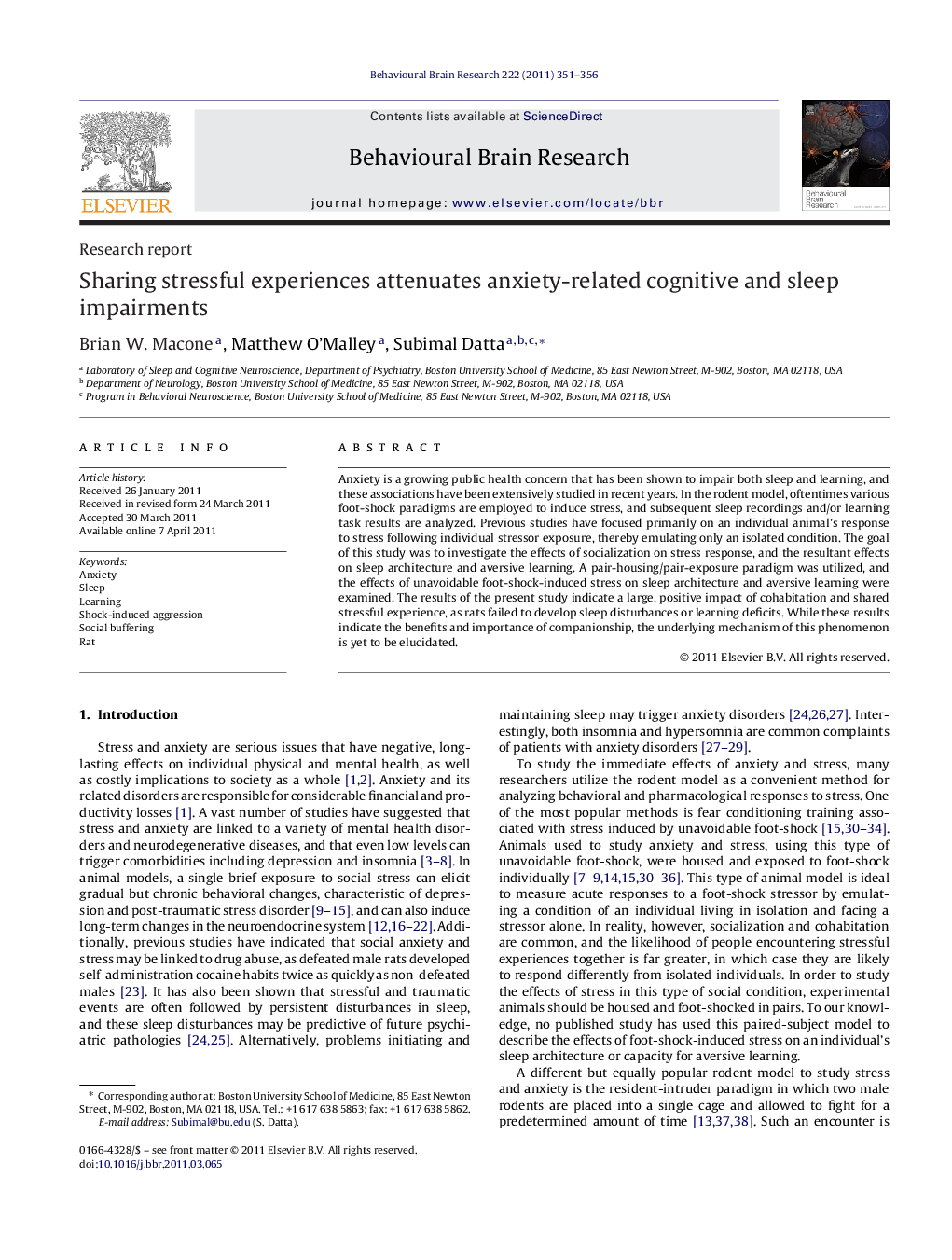| Article ID | Journal | Published Year | Pages | File Type |
|---|---|---|---|---|
| 6259733 | Behavioural Brain Research | 2011 | 6 Pages |
Anxiety is a growing public health concern that has been shown to impair both sleep and learning, and these associations have been extensively studied in recent years. In the rodent model, oftentimes various foot-shock paradigms are employed to induce stress, and subsequent sleep recordings and/or learning task results are analyzed. Previous studies have focused primarily on an individual animal's response to stress following individual stressor exposure, thereby emulating only an isolated condition. The goal of this study was to investigate the effects of socialization on stress response, and the resultant effects on sleep architecture and aversive learning. A pair-housing/pair-exposure paradigm was utilized, and the effects of unavoidable foot-shock-induced stress on sleep architecture and aversive learning were examined. The results of the present study indicate a large, positive impact of cohabitation and shared stressful experience, as rats failed to develop sleep disturbances or learning deficits. While these results indicate the benefits and importance of companionship, the underlying mechanism of this phenomenon is yet to be elucidated.
⺠Pair-housing and pair-exposure effect on sleep and learning after stressor exposure. ⺠Socialization mitigates changes in sleep architecture after stressor exposure. ⺠Socialization mitigates changes in aversive learning after stressor exposure.
